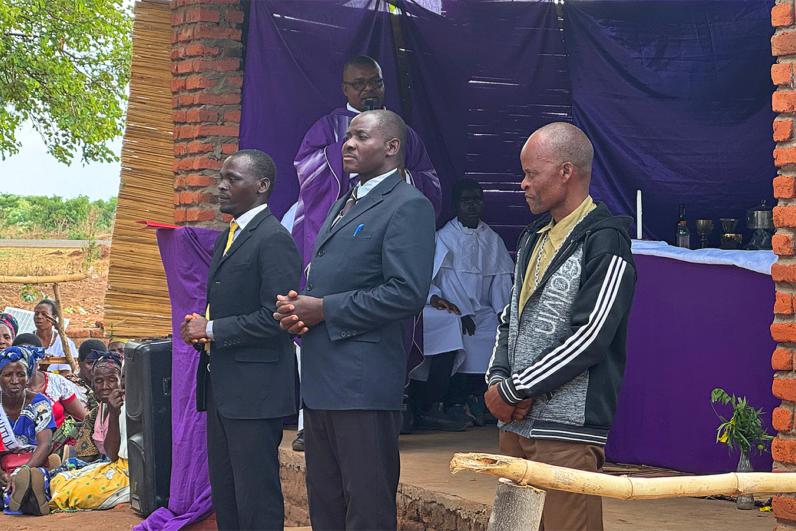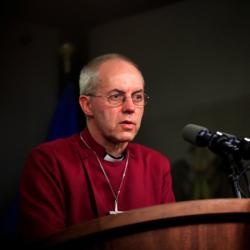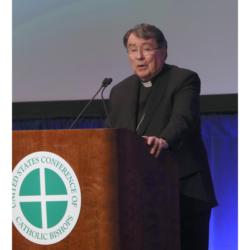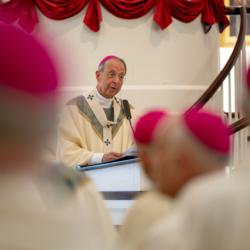The Training of Mission Catechists Depends on Us!
Arrival at a parish in the missions for Mass is never boring!
Men are waiting to help unload whatever is brought with the visitors. Women and children in colorful outfits dance and sing in celebration, not just for the guests, but in anticipation of the Mass, which is not necessarily a weekly occurrence.
During my latest trip to the missions of Malawi, as our group left the van, the crowd surrounded us and led us to a small building constructed of locally made and fired bricks. It was their church, built years ago when they were still an outstation of another parish. They had long ago outgrown it -- they now worship outside -- but were so proud to show it off.
Now a full-fledged parish dedicated to Saint Bernadette, they have three outstations of their own signifying that the faith has been spread far beyond their original borders. Small Christian Communities are alive in places that are many miles from the parish proper. Members of these communities meet regularly to pray, study Scripture, and learn more about the tenets of Catholicism. As a parish grows, it will develop many of these so-called outstations.
The lynchpin of this whole scenario is the catechist.
This is my twenty-fifth year of service to TPMS; I have been privileged to witness the growth of the mission Church on every populated continent. In all my travels, it is the catechist that I have come to admire most.
The ministry of a catechist in the missions is quite different from that of one in our Western society. We may think of this position as someone who volunteers on a Sunday morning or a weekday afternoon to teach faith formation to children for an hour or so. In the missions, a catechist's ministry is a vital all-encompassing, full-time commitment.
In Malawi, to become a catechist, one goes to live at a training center with their family for a couple of years. They are given a small plot of land to farm to feed themselves. The catechist-to-be attends theology and teaching classes. Their children go to school, while their spouses (not all catechists are men!) devote themselves to a different type of education. They learn economics, basic hygiene principles, farming techniques, land conservation skills, and more. This is so that once the catechist is commissioned, the spouse is able to actively help people in the community better manage their households and farms and participate more fully in the life of the Church.
This program is just one of many supported by donations to The Society for the Propagation of the Faith.
Go to www.propfaithboston.org to help us train more catechists and grow the young, mission Church!
- Maureen Crowley Heil is Director of Programs and Development for the Pontifical Mission Societies, Boston.



















